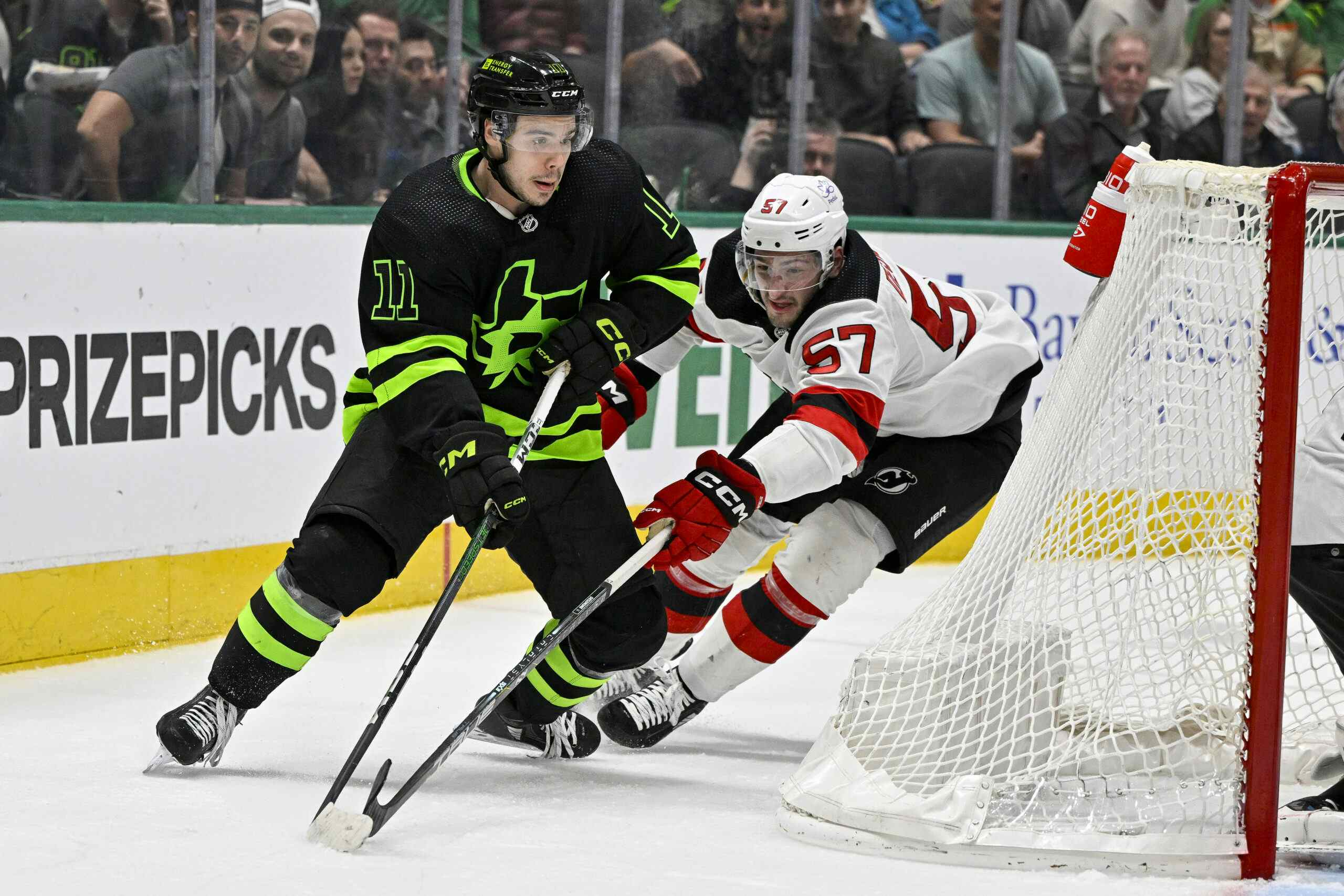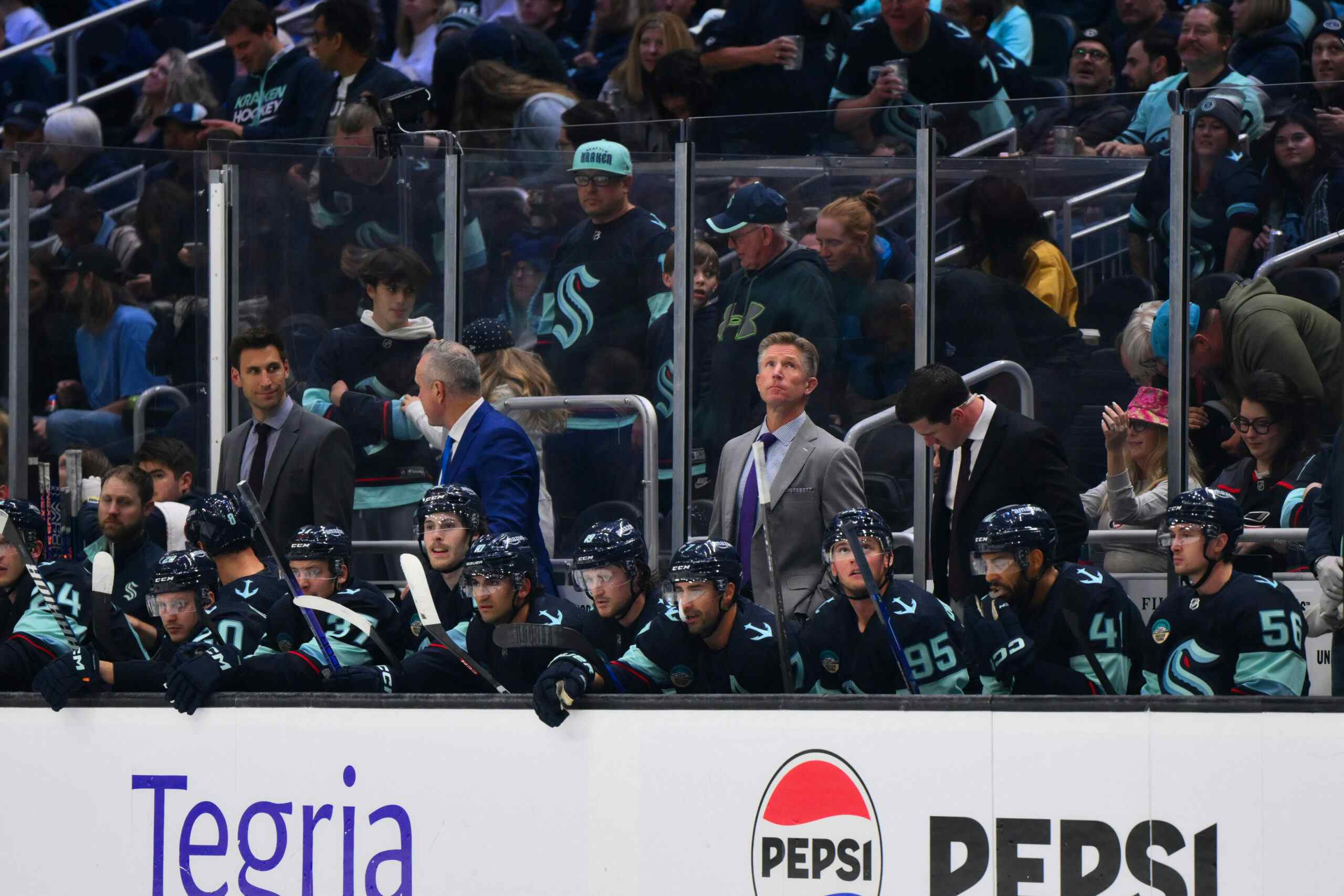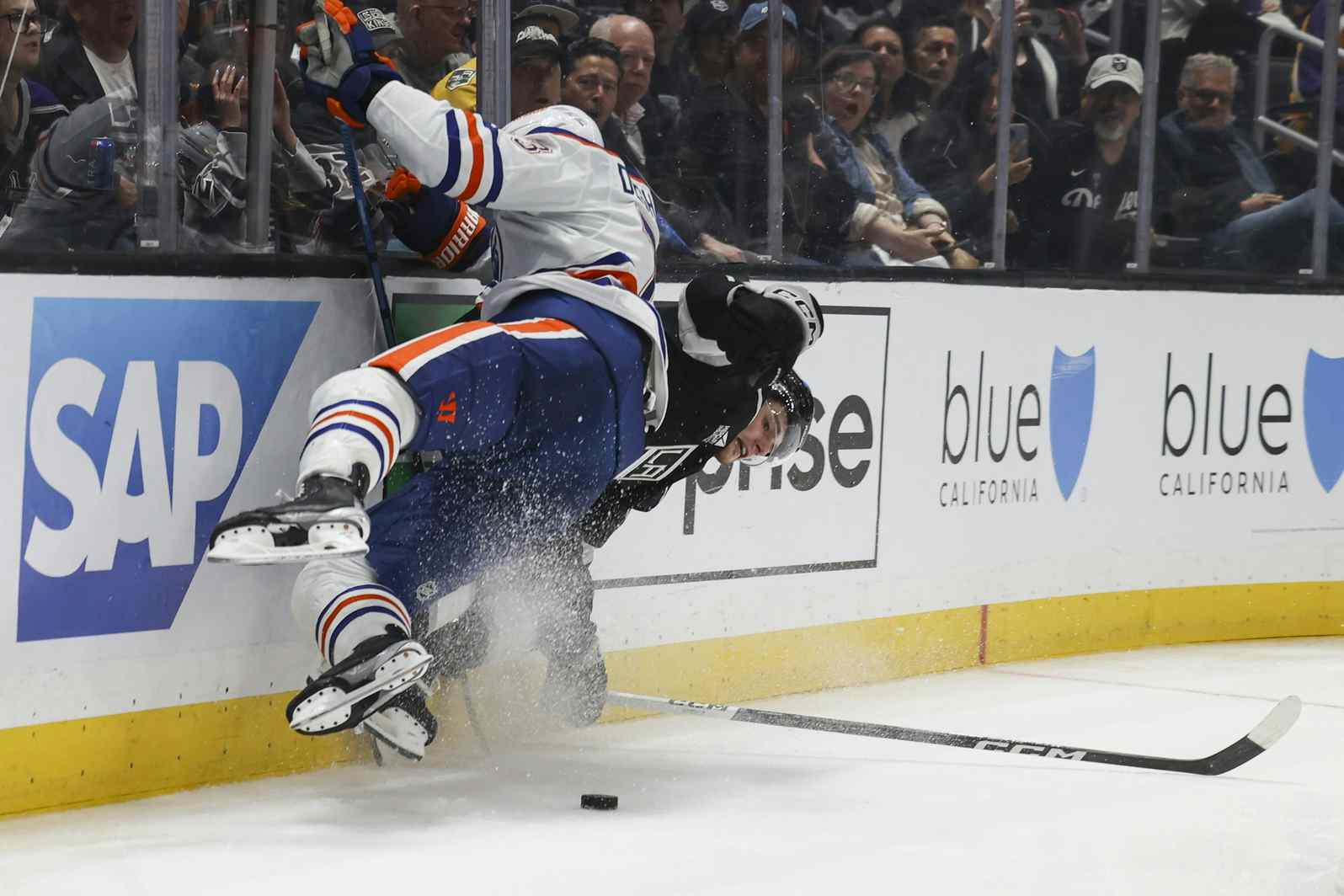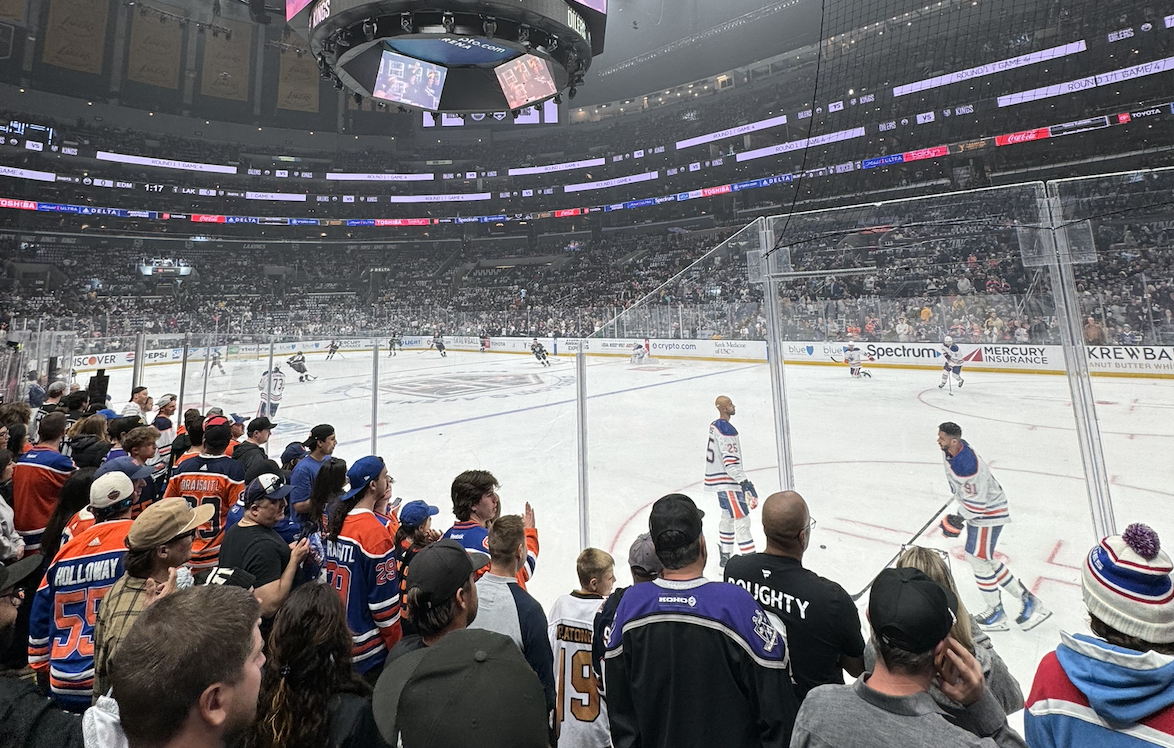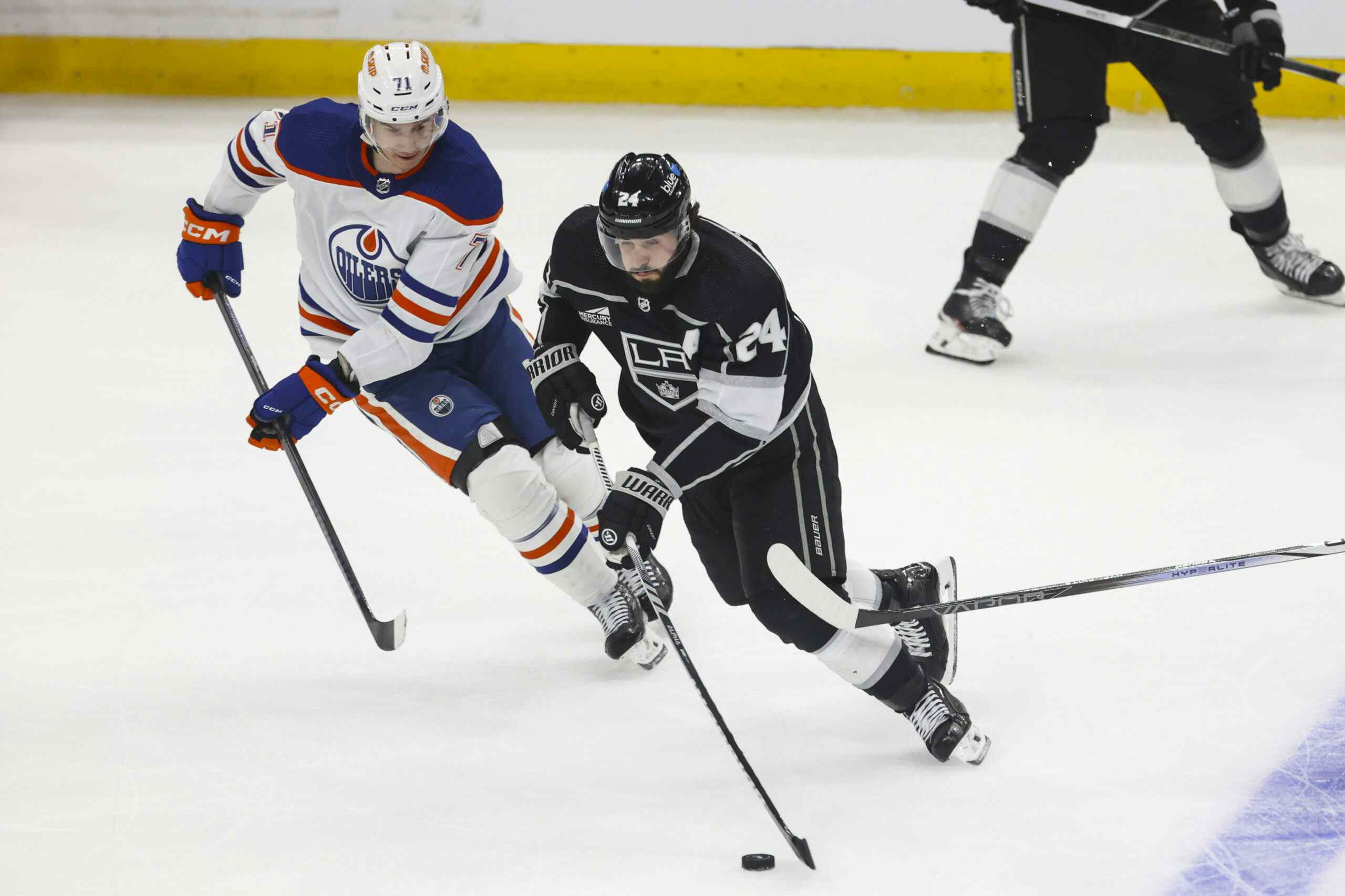Pressing the advantage

Nail Yakupov (Resolute/Wikimedia Commons/CC BY-SA 3.0)
The Edmonton Oilers have had a pretty good summer, all things considered. Nail Yakupov is a nice addition to the group of talented young forwards already on the team. Justin Schultz is exactly the sort of player the team needs – a top prospect in the same age range as the current cluster, the kind of guy who should help a bit now and a lot more over the long haul. Bringing back veteran forward Ryan Smyth helps.
For all the good, however, things could have been better.
The problem is that with all due respect to the Oilers efforts with regard to the three players listed above, in each case it was a situation where good things fell into their lap. The NHL draft lottery provided the chance to pick Yakupov, rather than Ryan Murray. In the case of Justin Schultz, every team in the league wanted to sign him, and while the Oilers made the hard sell it was more a case of the player choosing the team than the team choosing the player. Ryan Smyth’s deal didn’t get done until the 11th hour, when Smyth took a modest two-year deal to stay with the team he had orchestrated a trade back to.
The Oilers did good work in all three instances – taking Yakupov rather than being tempted by a defenceman, pushing hard for Schultz, and getting Smyth to sign a bargain contract – but none of the moves involved taking the initiative to go out and improve the team. There was no ‘this team is looking at playoff hockey, and to get there will do X’ moment – they took what was handed them and left it at that.
Thus, the problems of last season look likely to be the problems of this season as well.
In net, where Devan Dubnyk will be the incumbent starter, there is no insurance policy. The Oilers could have cheaply bought out Nikolai Khabibulin and upgraded the position but instead they’re going to stick with the same tandem, even though it means there’s no reliable insurance policy if Dubnyk falters. Khabibulin’s the number two, and Yann Danis is a good number three, just like last season.
On defence, just like last season, the team will lean hard on Ryan Whitney and hope that this time he’s 100% healthy all season long. Jeff Petry and Ladislav Smid performed well when thrown to the wolves last year, so they get to try and repeat that success. The only addition is Schultz the younger, despite the fact that it’s remarkably easy to imagine a situation where the team is in trouble on the back end right out of the gate:
Consider the following scenario: Ryan Whitney’s injury problems flare up in training camp, Justin Schultz struggles early, and at age 37 Andy Sutton loses a step from last season. It’s a pessimistic scenario, to be sure, but also entirely plausible. If that happens, suddenly the Oilers eight-deep defensive group has just three legitimate top-four defensemen (none of them in the ‘#1 NHL defenseman’ mold) with the fourth spot in the top four a toss-up between a struggling Justin Schultz and Corey Potter. The lesser of that duo gets to pair with either a slowing Andy Sutton or Theo Peckham on the third pairing.
Up front, it’s the same group as last year. The young core should (with health, and barring slumps) all continue on an upward trajectory. The depth players of a year ago – including two guys in Darcy Hordichuk and Lennart Petrell that were major contributors to one of the worst fourth lines in hockey – are all back. The status quo rules, barring the addition of Yakupov.
Could things have been different?
A Brief-ish Historical Interlude

This subject change is going to feel a little jarring, but give it a moment and everything will tie together. Most people are probably aware that Horatio Nelson is generally seen as the best naval commander of his age, possibly in history. His strategic brilliance and his ability to inspire loyalty and even love in his subordinates (the term “band of brothers” was coined by Nelson initially referred to a tight-knit group of captains who served with him) are often cited when singing his praises, but he’s far from the only tactically brilliant or inspirational officer the Royal Navy produced. At the heart of Nelson’s legend was a unique gift he had for pressing home the advantage: when given any opportunity, he made the absolute most of it.
It is important to understand that sea battles in that age were generally a game of cat-and-mouse: intelligence gathering was uncertain, and it was often difficult for the commander of one fleet to know where his enemy was. Additionally, once a fleet had reached a safe port, it was virtually unassailable. With the support of shore batteries, a strong defensive position and often a choke point which limited the ability of attacking vessels to concentrate their strength, blockades became more common than actual battles. Adding to the risk for the attacker was the fact that charts were often inaccurate – a defender knew exactly how close to shore he could get without running aground, while the attacker rarely did.
Nelson, however, always forced a battle when handed an opportunity to engage.
At the Battle of Cape St. Vincent, he disobeyed an order from his commanding officer and engaged the Spanish fleet headlong: within 10 minutes of leaving the British formation, his 74-gun ship was directly fighting with seven Spanish opponents, with three of those boasting more than 100 guns. Nelson’s crew captured two Spanish vessels and led to the rest of the fleet coming to his support.

At the Battle of the Nile, he attacked a French fleet in a nearly unassailable position immediately after spotting them: the French admiral was so surprised by the move that he initially assumed the British were confused, since no enemy would risk an attack under such conditions. Unfortunately for the French, they had anchored too far from shore and Nelson was able to split his fleet and attack from both sides – the French fleet ultimately lost 11 of their 13 ships of the line (the British lost none) and suffered roughly six times as many casualties as the British. In Nelson’s words as he surveyed the aftermath: “Victory is not a name strong enough for such a scene.”
At the Battle of Copenhagen, his superior argued for limiting Denmark’s ability to engage through a blockade; Nelson instead convinced him that the ideal approach was to sail into Copenhagen harbor, give the Danes an ultimatum and if it were turned down then to “annihilate” their fleet. That’s what they did. At one point, the battle was going so poorly that Nelson’s superior gave the signal to withdraw, reasoning “If he is in condition to continue the action, he will disregard it; if he is not, it will be an excuse for his retreat and no blame can be imputed to him.” Nelson, naturally, chose to disregard the order (famously holding his telescope to his blind eye and saying “I really do not see the signal!”) and instead told the Danes that they could surrender or he could start burning the ship he’d already disabled with their crews still aboard. The Danes surrendered, and their ships were either taken as prizes or destroyed.

At the Battle of Trafalgar, Nelson made perhaps his boldest decision. The tactical thinking of the day suggested that each fleet form into a line and exchange fire; unfortunately for the superior fleet, such a tactic also typically made it easy for an enemy to disengage once it was clear they had lost. Instead, Nelson organized his ships into two lines and aimed to split the French/Spanish formation. Because of the way ships were built (with guns on the sides, not the front) the tactic exposed his fleet to the massed firepower of its opponent while they closed the gap, and they were unable to inflict any real damage in that time period themselves. It was a terrible risk, but Nelson was justified by the result: a decisive victory. The French and Spanish lost 22 ships, the British none; the British side suffered less than 2,000 casualties while their opponents (including men captured) took seven times that number. Nelson died in the fighting, but the battle established Britain as the world’s only dominant power at sea.
Back To Hockey

Nelson was, above all else, not content to allow things to develop in an ordinary fashion. He was always pushing, always pressing, always actively looking to improve his situation.
It’s something the Oilers could have done this summer, to some extent even something they could still do. An ambitious general manager, one reaching out to grab hold of a playoff spot rather than idly sitting back and waiting for his team to rise to the challenge, would have had a busy off-season.
In net, Nikolai Khabibulin would be gone. He’s been hurt or playing poorly for the majority of his three years in Oilers silks. A particularly crafty general manager might possibly have dealt the veteran, but failing that a buyout and replacement via trade or free agency would have made good sense. The Oilers could have somebody on the team to push Dubnyk, somebody to lean on if Dubnyk falters early. They don’t, and that’s on management.
Another defenceman would have been added – even if it meant trading or waiving a Corey Potter or Theo Peckham. The Oilers have strength in numbers but they lack top-end ability on the blue line and the depth guys – the Potters, Peckhams and Suttons – aren’t the kind of players anybody wants to see in the top-four. The addition could have been made via trade or free agency – for that matter, given that Carlo Colaiacovo and Michal Rozsival and Milan Jurcina are all still unsigned the team could still shore up the position. They haven’t, and if injuries hit early they will regret it.
Up front, bringing back the same fourth line from last year is hard to defend. While the individuals involved – Lennart Petrell, Darcy Hordichuk, Ben Eager and Eric Belanger – all have good points, the unit got hammered last year. How hard would it have been to make an upgrade there – or higher up the lineup, bumping a guy like Ryan Jones down a slot to start the season? Would it have been that difficult to let Petrell walk, demote Ryan Jones to the fourth line (until injuries hit) and bring in a veteran to play with Smyth and Horcoff?
These are things an aggressive general manager might have done. The fact that the Oilers didn’t isn’t the end of the world – they still added good players, and with the heart of the team being quite young they ought to be better in 2012-13. All the same, an opportunity was missed.
Recent articles from Jonathan Willis

